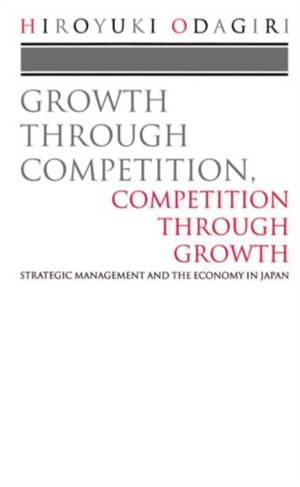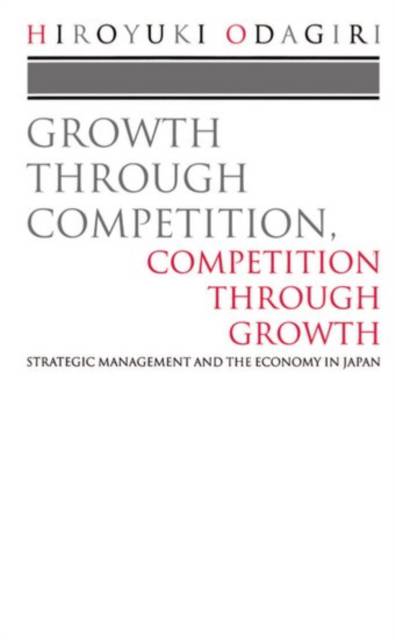
Door een staking bij bpost kan je online bestelling op dit moment iets langer onderweg zijn dan voorzien. Dringend iets nodig? Onze winkels ontvangen jou met open armen!
- Afhalen na 1 uur in een winkel met voorraad
- Gratis thuislevering in België vanaf € 30
- Ruim aanbod met 7 miljoen producten
Door een staking bij bpost kan je online bestelling op dit moment iets langer onderweg zijn dan voorzien. Dringend iets nodig? Onze winkels ontvangen jou met open armen!
- Afhalen na 1 uur in een winkel met voorraad
- Gratis thuislevering in België vanaf € 30
- Ruim aanbod met 7 miljoen producten
Zoeken
Growth Through Competition, Competition Through Growth
Strategic Management and the Economy in Japan
Hiroyuki Odagiri
Paperback | Engels
€ 59,95
+ 119 punten
Omschrijving
This book examines two characteristics that lie at the core of Japanese management: growth pursuit by internal investments (as opposed to acquisitions), and the intensive competition within and among Japanese firms. Odagiri also looks at how these firms maintain flexibility and efficiency under the seemingly rigid system of "lifetime" employment. This work begins with an enquiry into the financial and human aspects of the firm, with particular emphasis on its human portion. The motivation, behavior, and organization of Japanese management as well as the consequences of the system on the Japan's industrial organization and economy are explored. Emphasis is placed on the fact that competition is at the center of the Japanese economy and management style to the same, if not a greater, degree as in the West. This competition is enhanced by the growth preference of the Japanese management style and it also, in turn, makes growth possible.
Specificaties
Betrokkenen
- Auteur(s):
- Uitgeverij:
Inhoud
- Aantal bladzijden:
- 380
- Taal:
- Engels
Eigenschappen
- Productcode (EAN):
- 9780198288732
- Verschijningsdatum:
- 30/06/1994
- Uitvoering:
- Paperback
- Formaat:
- Trade paperback (VS)
- Afmetingen:
- 138 mm x 215 mm
- Gewicht:
- 498 g

Alleen bij Standaard Boekhandel
+ 119 punten op je klantenkaart van Standaard Boekhandel
Beoordelingen
We publiceren alleen reviews die voldoen aan de voorwaarden voor reviews. Bekijk onze voorwaarden voor reviews.











